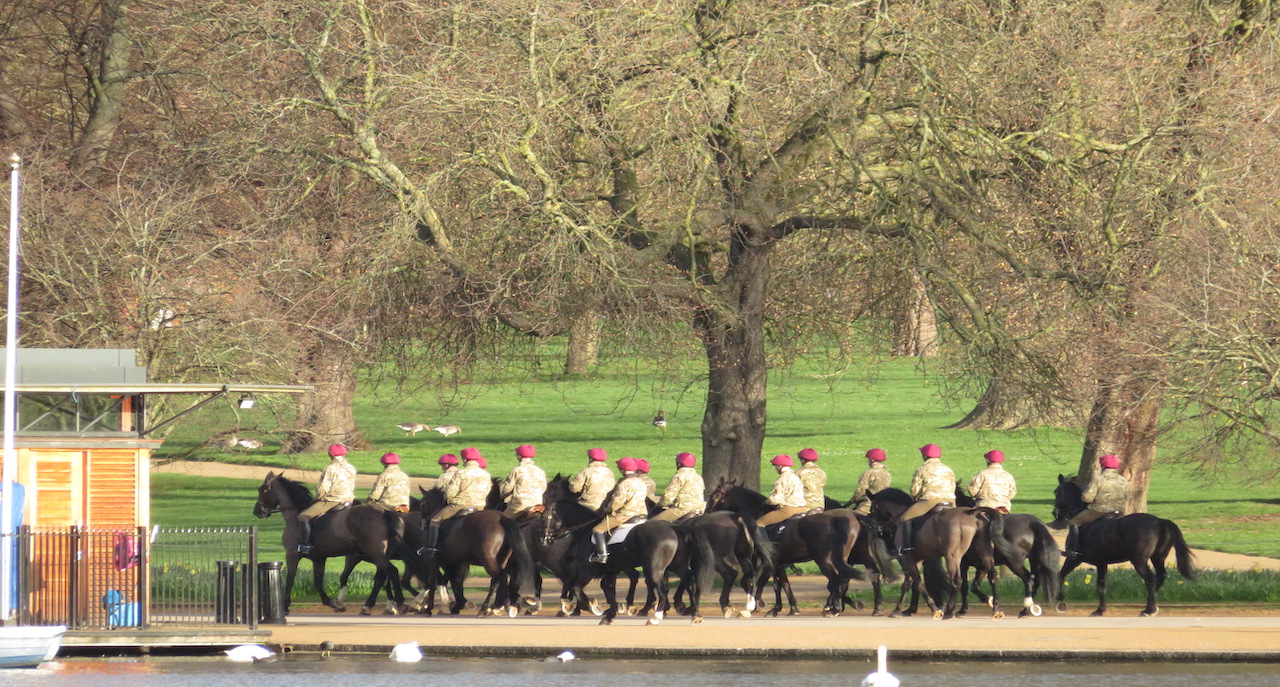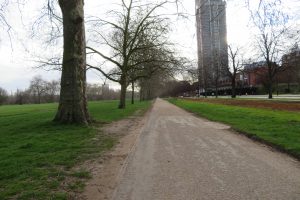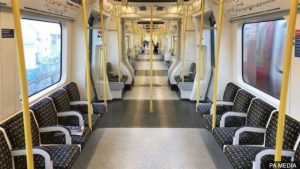Tuesday 17 March 2020

Household Cavalry out for their morning trot – is this social distancing?
I need to understand things better as I am beginning to get confused. Yet as I look around central London, and I receive almost hourly notifications from sequential businesses that they are being forced to close, I pray that this is worth it. Covid-19 is one thing, the chaos created by closures and self-isolation is another.
I sense, too, that a section of the public has still not grasped it. Once again, I went for my early morning jog, barely a day after the Prime Minister had changed the goalposts. Within moments, I was greeted by a man in his thirties, puffer jacket with hood in position, spitting on the pavement outside an underground station. His spit may have been teeming with virus. I wanted to shout, “Hey you!” but knew the likely response. Maybe a vacant stare, perhaps a rude sign, or something more dramatic.
I jogged on, my route now unusually empty, as I followed a strung-out line of solo joggers, each trying to give others space. Mostly this group of early-morning athletes stayed as singles but on occasion there were pairs or even threes. A couple walked by me, coming in the opposite direction. She was talking, he was smoking, while they were both holding each other’s ungloved hand. I then passed a street corner to see four workmen squatting on the ground, each no more than half-a-metre from the other. They were smoking, talking, touching for emphasis. Around another corner I saw a café, with its broad and polished glass windows. Inside there were some empty tables but at others sat groups of twos and threes drinking coffee and eating breakfast. Then there was the Household Cavalry, out for their early morning trot. Sixteen horses and 16 riders gaggled together in a crowded space. If I was a virus I would be delighted.
Social distancing, so many seem to be think, is something practised by others. “It doesn’t apply to me,” appears to be their conclusion.
One way of attracting instant attention on the streets is to cough, sneeze or produce a handkerchief. I sneezed loudly and reflexly when passing under Marble Arch and nearly brought all traffic to a standstill. A cab driver leaned from his open window and shouted, “Good luck mate! Hope you make it!”, and two young woman in a small group of students screamed and hid behind a nearby wall. A beggar on the pavement, playing a vintage squeezebox, winked at me sympathetically and kept on playing a perfect jig. I did not have the heart to tell any of them that my sneeze was purely accidental.

My jogging route was unusually empty
From their viewpoint I was already dead.
Outside London, life is also troubled, even if the capital has been smitten worse. The M25, that circular route around the city, seems now to be filled with delivery lorries, I imagine handling the panic-buying. Even so, they appear not to be succeeding. Supermarket shelves are still denuded of daily items and online shopping is frequently impossible. “You are number 10,000 in the queue said one,” as if that was to make me happy. Even when successful, there is a two-week wait at least for delivery.
More worrying is how folk are responding. Special openings of food shops are being timetabled for the elderly, yet other age groups appear and strip the shops clean ahead of their seniors. There is nothing left for the intended. Meanwhile a friend who lives south of London was seeking cartridges from his local gun shop. The place had run out of ammunition without any idea of when a further delivery could be expected. People are not only storing Wet Wipes, pasta and toilet paper. They are preparing for possible turmoil, with a society that is on edge. There is selfishness in the air, which I had hoped I would not see.
I am concerned by the information on which all this is based. We are told there is a risk of dying from Covid-19, which indeed there is. Yet the figures are for deaths as a percentage of confirmed cases, without any knowledge of how many unconfirmed cases there are in the community. The more unconfirmed cases out there, the lower the death rate becomes. There are some who have been in contact with patients smitten by Covid-19, and yet who are told they have no need for a test. Self-isolate, they are instructed, and we will test you if symptoms appear. No wonder a private provider of Covid-19 testing is working overtime in London’s Harley Street, and has already undertaken 2000 tests at a lofty price of £375.
Is our social chaos and the lockdown of life as we know it justified? I am worrying that it may not be. “It’s like an elephant being attacked by a house cat,” says author John Ioannidis in a recent article, “Frustrated and trying to avoid the cat, the elephant accidentally jumps off a cliff and dies.”

The unusual sight of an empty underground carriage (courtesy PA Media)
An advantage of the turmoil is that it is now possible to find a seat on the underground, as carriages are travelling largely empty. That only applies if you choose to ignore official warnings. The EU is about to ban all non-essential travel and more countries within the bloc are closing their borders. Meanwhile Trump is still referring to the “Chinese virus” and has added that the mayhem might last until the end of the summer. The Philippines has shut its stock exchange, Iran has released 85,000 prisoners, and India has shut the Taj Mahal. Back in UK, the NHS will be postponing all non-urgent operations and the Chief Scientific Adviser, Sir Patrick Vallance, has said that a good outcome from all of this would be UK deaths of less than 20,000.
This crisis is going to cost a fortune, as evidenced by the Chancellor saying today that he had put together a £350 billion lifeline. For some reason I thought he had said £30 billion. I now realise I was out by a factor of nearly 12.
And the good news? It is not raining, people smile when I pass them, even on London’s streets, and I now have plenty of time to complete my long list of tasks that were forever outstanding. All I have to do is avoid a virus.
